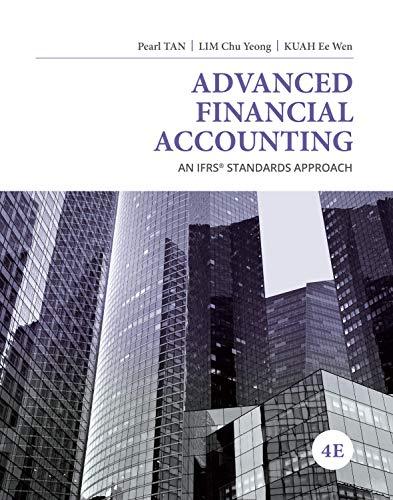Question
W3: Accounting Practices and Ethics in Small BusinessShare your thoughts about the following ethical scenario below, answering the questions at the end of the scenario.
W3: Accounting Practices and Ethics in Small BusinessShare your thoughts about the following ethical scenario below, answering the questions at the end of the scenario. Counting Earnings Before They HatchYou recently ran into one of your former high school teachers. You were surprised to learn that he'd left teaching, gone back to school, and, a little more than a year ago, started a business that creates Web sites for small companies. It so happens that he needs a loan to expand his business, and the bank wants financial statements. When he found out that you were studying accounting, he asked whether you'd look over a set of statements he'd just prepared for his first year in business. Because you're anxious to show off your accounting aptitude, you agreed.First, he showed you his income statement. It looked fine: revenues (from designing Web sites) were $94,000, expenses were $86,000, and net income was $8,000. When you observed how unusual it was that he'd earned a profit in his first year, he seemed a little uneasy."Well," he confessed, "I fudged a little when I prepared the statements. Otherwise, I'd never get the loan."He admitted that $10,000 of the fees shown on the income statement was for work he'd recently started doing for a client (who happened to be in big trouble with the IRS). "It isn't like I won't be earning the money," he explained. "I'm just counting it a little early. It was easy to do. I just added $10,000 to my revenues and recorded an accounts receivable for the same amount."You quickly did the math: without the $10,000 payment for the client in question, his profit of $8,000 would become a loss of $2,000 (revenues of $84,000 less expenses of $86,000).As your former teacher turned to get his balance sheet, you realized that, as his accountant, you had to decide what you'd advise him to do. The decision is troublesome because you agree that if he changes the income statement to reflect the real situation, he won't get the bank loan.What did you decide to do, and why?Will his balance sheet be incorrect if he doesn't change the income statement? How about his statement of cash flows?What will happen to next year's income? Will it be higher or lower than it should be?What would happen to your former teacher if he gave the bank the fraudulent financial statements and the bank discovered the truth?How could the bank learn the truth?

Step by Step Solution
There are 3 Steps involved in it
Step: 1

Get Instant Access to Expert-Tailored Solutions
See step-by-step solutions with expert insights and AI powered tools for academic success
Step: 2

Step: 3

Ace Your Homework with AI
Get the answers you need in no time with our AI-driven, step-by-step assistance
Get Started


